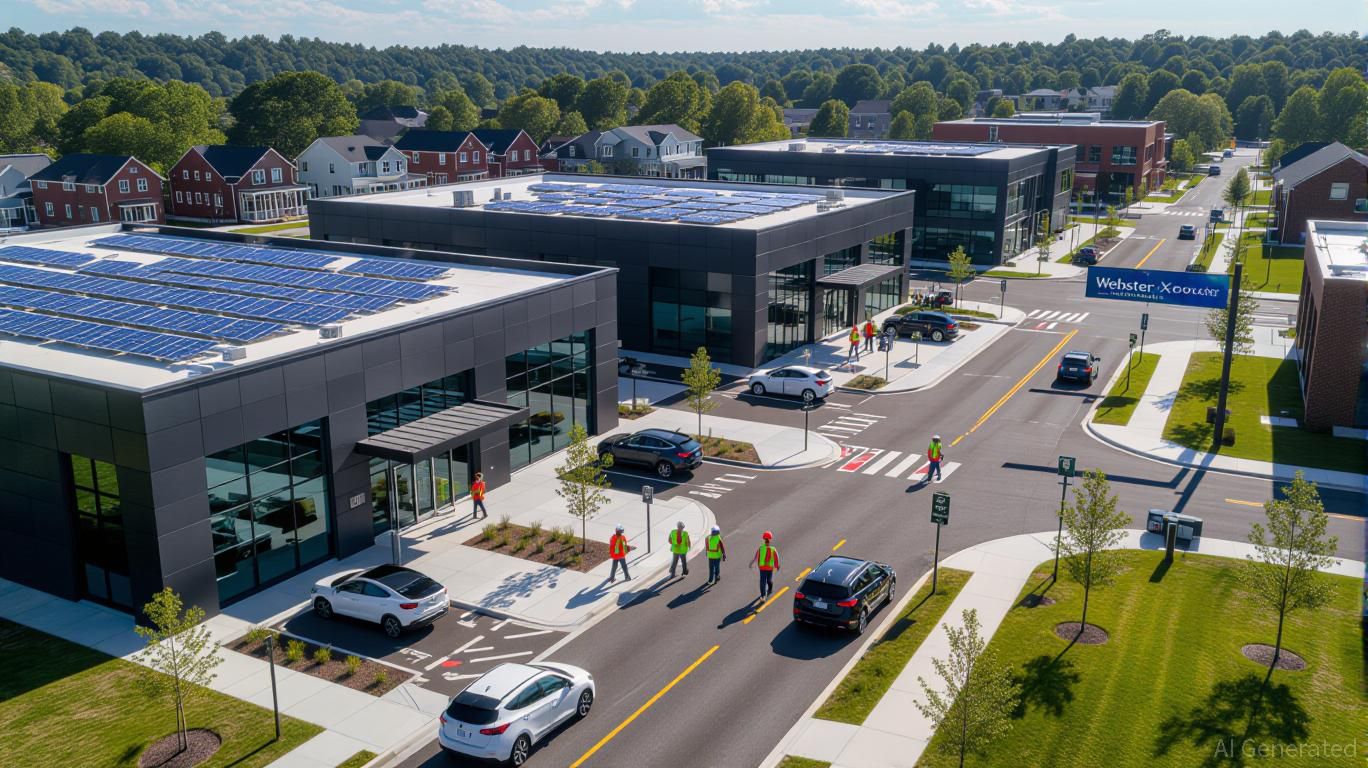Texas Law Paves Way For Official Bitcoin Reserve
This November 20 marks an unprecedented turning point in American budget history. Texas has become the first state to officially integrate bitcoin into its public reserves. At a time when fiat currencies are wavering and institutions are seeking solid alternatives, this decision stands as a strong signal. The Lone Star State paves the way for a new form of financial sovereignty, placing the flagship asset at the heart of its long-term economic strategy.

In brief
- Texas becomes the first US state to integrate Bitcoin into its public reserves.
- An initial investment of 10 million dollars was made via BlackRock’s IBIT ETF.
- This operation fits into a strategy framed by a law passed last June.
- This decision could reshape the role of Bitcoin in US sovereign finances.
An institutional first : Texas buys bitcoin via BlackRock
Texas has become the very first US state to officially acquire bitcoin to form a strategic public reserve .
The announcement was made public by Lee Bratcher, president of the Texas Blockchain Council, in a message posted on X : “Texas becomes the first state to buy bitcoin with a 10 million dollar investment made on November 20, at a purchase price close to 87,000 dollars per BTC”.
This first purchase, totaling 10 million dollars, was made via the IBIT ETF (iShares Bitcoin Trust) managed by BlackRock, a global asset management giant. Such an acquisition takes place as part of a reserve program developed for over a year, in coordination with Texas public accountant Glenn Hegar and the State Treasury teams.
Here are the concrete elements of the operation :
- Amount invested : 10 million dollars in bitcoin ;
- Estimated purchase price : about 87,000 dollars per BTC ;
- Product used : BlackRock’s IBIT ETF (indirect, temporary exposure) ;
- An immediate allocation : 5 million dollars invested at purchase ;
- Legal framework : the operation is based on a law passed in June this year, creating the Strategic Bitcoin Reserve ;
- Legislative initiator : Republican representative Giovanni Capriglione, a supporter of strategic bitcoin reserves.
This progressive approach, initially via ETF, meets the need to respect the legislative timetable while securing immediate exposure to the bitcoin market. As Bratcher pointed out, “exposure via an ETF serves as a mechanism to launch the reserve without delaying the legislative timetable”.
The legislation ultimately provides for cold storage, long holding periods, and the possibility for citizens to make voluntary contributions in bitcoin. This acquisition is therefore much more than a simple purchase, as it represents the cornerstone of a state digital reserve with solid legal foundations.
An assumed political and budgetary strategy
Beyond the transaction itself, Texas incorporates its action into a long-term budget strategy aimed at considering bitcoin as a full-fledged strategic asset.
The state thus positions itself as a monetary innovation laboratory, in a dynamic similar to that observed in certain countries like El Salvador , although at a more discreet institutional level.
“This acquisition is the first step in a reserve plan under preparation for more than a year,” says Lee Bratcher, emphasizing the planned nature of this initiative. The stated goal is to build a sovereign digital reserve that can serve as an economic safety net in the coming decades.
The Harvard University foundation, for example, has increased its position in IBIT to 442.8 million dollars, a historic record for the institution. Other actors such as Emory University or Al Warda Investments (Abu Dhabi) follow a similar trajectory.
Locally, Texas therefore seeks to align itself with these major players while sending a signal to other US jurisdictions. New Hampshire has thus authorized the issuance of a municipal bond backed by bitcoin, marking another step in the integration of cryptos into public financing mechanisms.
Texas is opening an institutional breach by integrating Bitcoin into its reserves. While the price of bitcoin hovers around 87,000 dollars, this initiative triggers as much enthusiasm as questions about the future of public finances in the crypto era.
Disclaimer: The content of this article solely reflects the author's opinion and does not represent the platform in any capacity. This article is not intended to serve as a reference for making investment decisions.
You may also like
Bitcoin News Today: Xapo's Enhanced Bitcoin Fund Signals Growing Institutional Confidence in Digital Assets
- Xapo Bank expanded its Byzantine BTC Credit Fund after $100M in institutional allocations, reflecting growing demand for Bitcoin-backed yield products. - The fund uses Hilbert Group's institutional-grade lending process to generate low-risk returns for Bitcoin holders through collateralized loans. - Xapo's expansion follows 2022 lending sector collapse, leveraging regulatory compliance in Gibraltar/Cayman to rebuild institutional trust in Bitcoin collateral. - The product differentiates from ETFs/stablec

Bitcoin News Update: Movements of Investors' USDT Indicate Bitcoin Highs and Periods of Profit Realization
- Bitcoin's price inversely correlates with USDT outflows, as investors shift liquidity between assets during market cycles. - S&P Global downgraded USDT's stability rating to "weak" due to 5.6% Bitcoin allocation and opaque reserves amid U.S. regulatory reforms. - The GENIUS Act and EU's MiCA framework are reshaping stablecoin markets, forcing Tether and Circle to launch jurisdiction-specific, cash-backed alternatives. - Institutional ETF activity, including Texas's Bitcoin purchases and fragmented inflow

The New Prospects for Economic Growth Infrastructure in Webster, NY
- Webster , NY, leverages $9.8M FAST NY grants and PPPs to transform Xerox campus into a high-tech industrial hub. - Infrastructure upgrades including roads, sewers, and electrical systems aim to attract advanced manufacturing and renewable energy firms. - Governor Hochul's strategy drives $51M in upstate investments, creating 250+ jobs via projects like the $650M fairlife® dairy plant. - Redevelopment boosts industrial land availability and residential property values by 10.1%, with mixed-use zoning enhan

The Impact of Artificial Intelligence on Contemporary Portfolio Management: Potential Benefits and Challenges
- AI redefines portfolio management with real-time analytics and dynamic asset allocation, shifting from static human-driven strategies to data-centric systems. - Generative AI tools like ChatGPT automate financial workflows, enabling hyper-personalized strategies and boosting business outcomes through optimized digital presence. - Risk modeling evolves via AI's pattern detection, but challenges persist in transparency and bias, requiring explainable AI frameworks and human oversight. - Institutions integr

